Supreme Court rules that doctors can remove food and fluids from patients with permanent vegetative state, without going to court
 My Radio Four Today programme interview on this case is here, and my interview with BBC Radio Five Live is here.
My Radio Four Today programme interview on this case is here, and my interview with BBC Radio Five Live is here.
Should doctors be able to withdraw food and fluids from severely brain-damaged people who are not imminently dying? And if so, in what circumstances?
The answer to these questions has changed significantly today because of a decision by the Supreme Court.
Patients with permanent vegetative state (PVS) and minimally conscious state (MCS) can now be effectively starved and dehydrated to death if the medical staff and relatives agree that this is in their ‘best interests’.
People with PVS (awake but not aware) and MCS (awake but only intermittently or partially aware) can breathe without ventilators but need to have food and fluids by tube (clinically assisted nutrition and hydration or CANH).
These patients are not imminently dying and with good care can live for many years. Some even regain awareness. But if CANH is withdrawn, then they will die from dehydration and starvation within two or three weeks.
Until last year all cases of PVS and MCS have had to go to the Court of Protection before CANH could be withdrawn.
Under the old rules, only about 100 applications to stop tube feeding have been made in more than 20 years, since the Tony Bland case created the precedent in 1993. But this could now hugely increase.
In two cases last year (known as M and Y) the High Court ruled that if the relatives and medical staff agreed that withdrawal of CANH was in the patient’s ‘best interests’ then the court need not be involved.
Three medical bodies – the BMA, RCP and GMC – issued interim guidance in line with this decision last December and at the same time the Court of Protection similarly changed its rules.
The Official Solicitor appealed this decision to the Supreme Court in a hearing in February. The Supreme Court has only just issued its judgement today effectively upholding the decision of the High Court.
In giving her judgement, Lady Black (pictured above), with whom the other four Supreme Court judges fully agreed, made three critical rulings.
First, she argued that ‘there may come a time when life has to be relinquished because that is in the best interests of the patient’.
Second, she said that that there is no difference in principle between turning off a ventilator and removing a feeding tube as both are ‘forms of medical treatment’.
Third, she said patients with PVS and MCS should be treated in the same way as people with ‘severe stroke’ a ‘degenerative neurological condition’ or ‘other condition with a recognised downward trajectory’ where ‘decisions to withhold or withdraw CANH are made on a regular basis without recourse to the courts’.
In making these declarations Lady Black has dramatically moved the goalposts on end of life decision-making.
Once we accept that death by dehydration is in some brain-damaged people’s ‘best interests’ we are on a very slippery slope indeed.
There is a clear difference between turning off a ventilator on a brain-dead patient and removing CANH from a brain-damaged patient. In the first case the patient dies from their underlying brain injury. In the second they die from dehydration and starvation.
Similarly, PVS and MCS differ from conditions with a ‘downward trajectory’ because they are not progressive and do not in themselves lead inevitably to death.
The Supreme Court has set a dangerous precedent. Taking these decisions away from the Court of Protection removes an important layer of legislative scrutiny and accountability and effectively weakens the law.
It will make it more likely that severely brain-damaged patients will be starved or dehydrated to death in their supposed ‘best interests’ and that these decisions will be more influenced by those who have ideological or financial vested interests in this course of action.
Prof Derick Wade, a consultant in neurological rehabilitation based in Oxford, estimates there could be as many as 24,000 patients in the NHS in England either in PVS or MCS, with most of them in nursing homes.
Given that it costs about £100,000 per year to care for a person with PVS or MCS the potential ‘saving’ for the NHS could be as much as £2.4 billion annually if most seek to go down this route. This is not a temptation we want to put before medical staff and administrators given current financial pressures.
But it is also bad medicine.
There are still significant uncertainties about diagnosis and prognosis in both PVS and MCS. These have increased rather than decreased in the last 20 years and this is why continued court oversight is necessary.
Making judgements about diagnosis, prognosis and best interests in these cases is fraught with difficulty and should be carried out only by those with specialist experience.
The Court of Protection has already overturned some doctors’ decisions in previous cases and some patients have recovered awareness months or even years after being diagnosed with PVS or MCS. This is more common after traumatic brain injury than after oxygen deprivation.
There are also advances being made in the treatment of some acute brain injury because of brain cooling techniques, intracranial pressure monitoring and neurosurgery.
But most seriously there is the real risk that those who have vested ideological, financial or emotional interests in a person’s death could exert undue influence.
Recent experiences around the Liverpool care pathway, and in the Gosport hospital, should make us wary of leaving doctors without proper regulatory and legal oversight.
When difficult medical decisions are left to doctors who are inexperienced, inadequately trained or working under intense pressure bad decisions can be made.
When they are left to those who believe that brain-damaged patients are better off dead then we are in a very dangerous place indeed.
It is just possible that today’s Supreme Court decision will not change medical practice in this area.
But I am not holding my breath.
The full judgement is available here and the press summary of the judgement here.
This blog originally appeared on Monday 30 July 2018 on the Christian Medical Comment blog

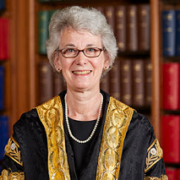
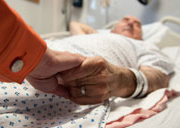
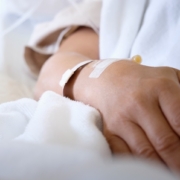


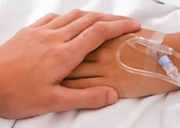

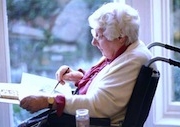

Leave a Reply
Want to join the discussion?Feel free to contribute!